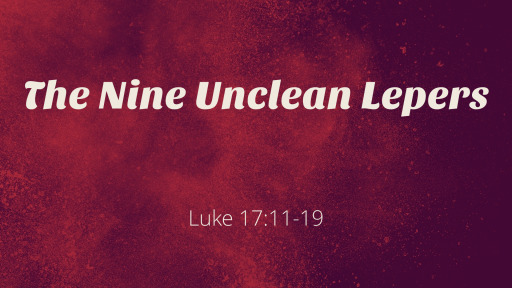The Nine Unclean Lepers

Introduction
Big Idea: Look to Jesus and He will change you from a scoffer to a worshipper.
The Unclean Turned to Jesus
The Unclean Turned to Jesus
From Trust Comes Deliverance
We All Need Transformation
Outer Response Reflects Inward Truth
Conclusion
A prostitute came to me in wretched straits, homeless, sick, unable to buy food for her two-year-old daughter. Through sobs and tears, she told me she had been renting out her daughter—two years old!—to men interested in kinky sex. She made more renting out her daughter for an hour than she could earn on her own in a night. She had to do it, she said, to support her own drug habit. I could hardly bear hearing her sordid story. For one thing, it made me legally liable—I’m required to report cases of child abuse. I had no idea what to say to this woman.
At last I asked if she had ever thought of going to a church for help. I will never forget the look of pure, naive shock that crossed her face. “Church!” she cried. “Why would I ever go there? I was already feeling terrible about myself. They’d just make me feel worse.”
What struck me about my friend’s story is that women much like this prostitute fled toward Jesus, not away from him. The worse a person felt about herself, the more likely she saw Jesus as a refuge. Has the church lost that gift?
